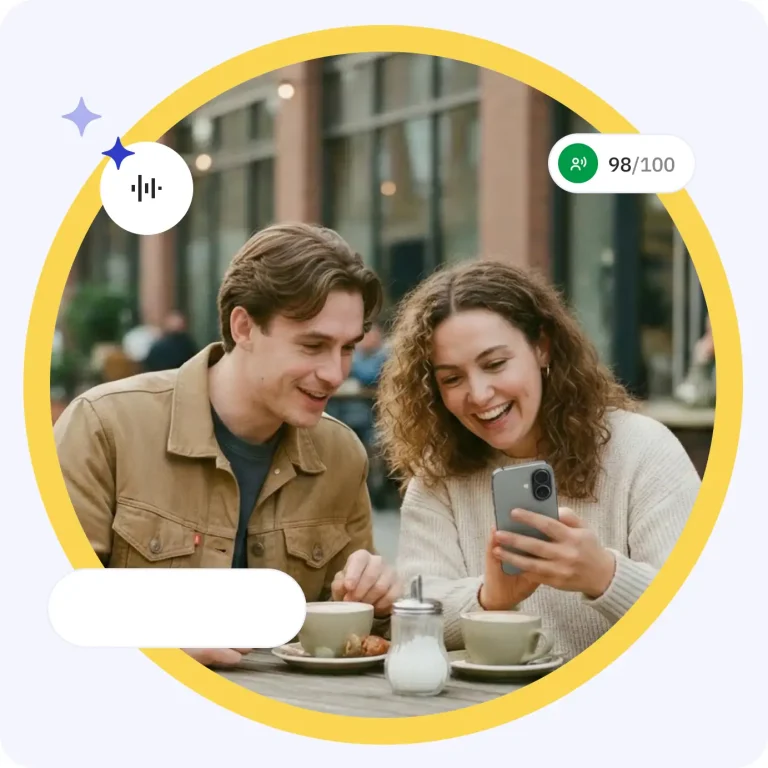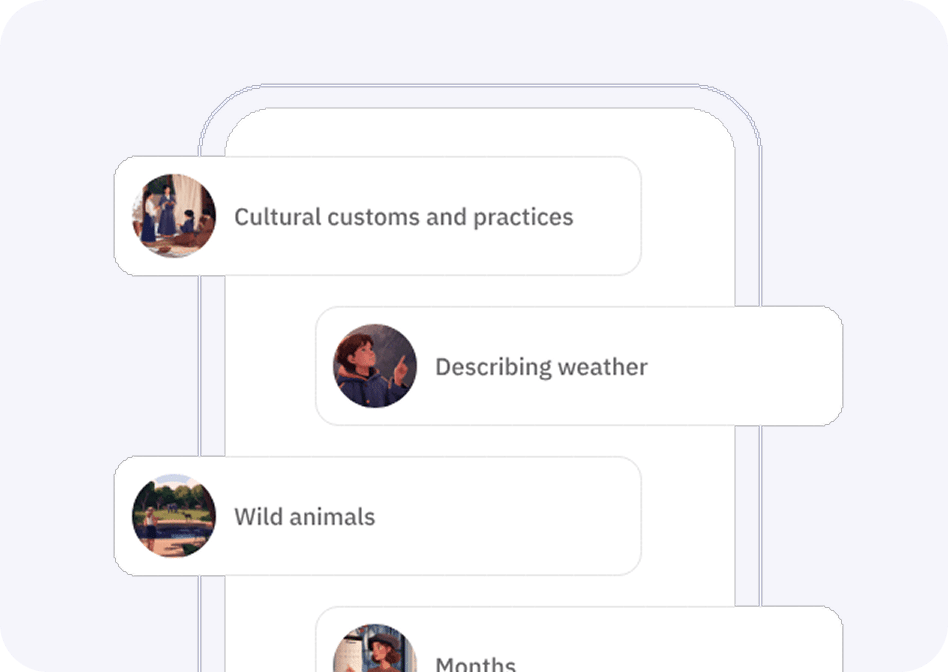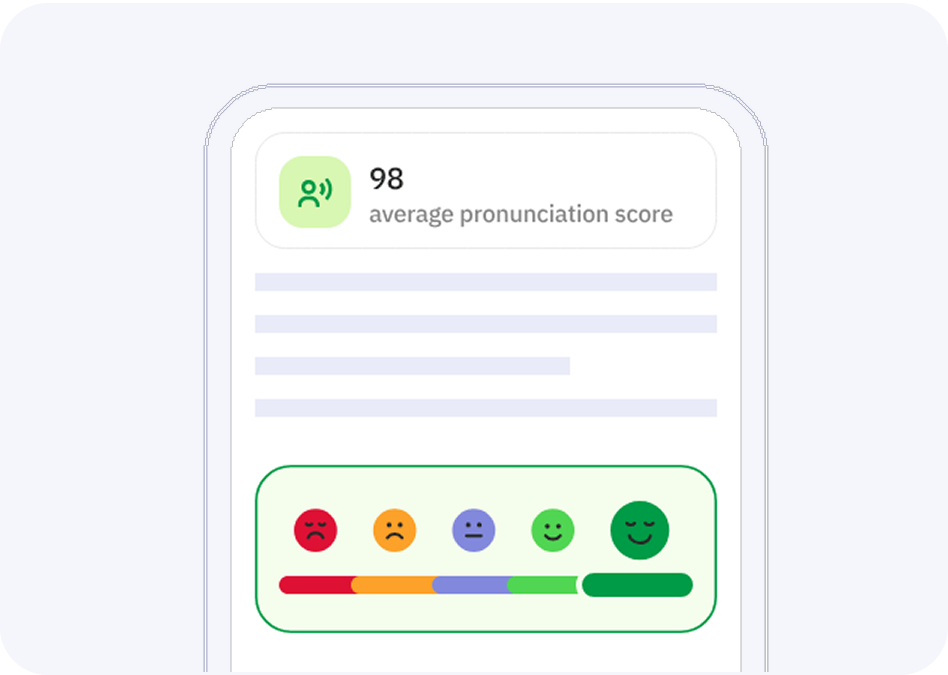Insider’s Guide to German Slang
Learning a new language is akin to embarking on an exhilarating voyage through uncharted waters. The voyage becomes even more fascinating when you learn the less-formal, colloquial expressions of the language, also known as ‘slang’. Today, the language in focus is German. The German language, or ‘Deutsche’, is filled with vital expressions of colour, humour and delightfully creative metaphors. Let’s dive into the fascinating world of German slang, or as local speakers would say, ‘Deutsche Umgangssprache’.

The talkpal difference

Personalized Education
Every student has a distinct approach to acquiring knowledge. Through Talkpal technology, we analyze the study patterns of millions simultaneously to build highly effective educational environments that adapt specifically to individual needs. This ensures your journey is fully customized based on your interests and goals rather than a generic curriculum.

Cutting-Edge Technology
Our central mission is to lead the way in providing universal access to a tailored learning journey. By utilizing the most recent breakthroughs in artificial intelligence and modern software, we ensure that everyone can benefit from a sophisticated and personalized educational experience.

Making Learning Fun
We have transformed the study process into a delightful activity. Staying motivated while learning online can often be a struggle, so we designed Talkpal to be incredibly captivating. The platform is so engaging that users frequently prefer mastering new language skills over playing video games.
LANGUAGE LEARNING EXCELLENCE
The most efficient way to learn a language
Try Talkpal for freeGerman Slangs
German slang is as rich and diverse as the country and its people, bursting with expressions that weave a fascinating tapestry of the German lifestyle and culture. While some parts are a delightful blend of sweetness, like a well-prepared Apple Strudel, others come with the witty punch of a crisp Lager beer.
Slang 1: ‘Alter Schwede’
Let’s start from the top with ‘Alter Schwede’, which translates to ‘old Swede’. It’s used to express surprise. But why reference old Swedes, you ask? It dates back to the 30-Year War when Sweden was a German ally. The ‘old Swedes’ depicted the experienced, wise soldiers.
Slang 2: ‘Bock haben’
Next up is ‘Bock haben’, roughly translating to ‘having a goat’. Now, don’t be fooled thinking this has anything to do with pseudo-zoology. If a individual says “Ich habe Bock”, they’re stating they feel like it or are up for something. If you’re wondering where the goats come in, it’s a throwback to an old hunting term where ‘Bock’ meant ‘aim’.
Slang 3: ‘Das ist Wurst’
If someone tells you ‘Das ist Wurst’, don’t rush to grab your forks, as it translates to ‘that’s sausage’. It’s a whimsical way of expressing indifference, akin to English speakers saying ‘it doesn’t matter’. Trust Germans to use food as metaphors, right?
Slang 4: ‘Blau sein’
‘Blau sein’ literally means ‘being blue’. However, Germans resonate with the Smurfs in only colour, as being ‘blue’ in German slang implies being drunk. So, next time before ordering another pint, remember ‘Nicht so blau sein!’, or don’t be so blue!
Slang 5: ‘Feierabend’
‘Feierabend’, which technically translates to ‘celebration evening’, refers to the delightful period right after work, basking in the freedom of leisure time. German culture places high importance on work-life balance, making ‘Feierabend’ very commonly used.
Slang 6: ‘Null Bock’
Finally, we have ‘Null Bock’, meaning ‘zero goat’. Resembling ‘Bock haben’, this phrase denotes a lack of interest or motivation. Don’t we all have those ‘Null Bock’ moments?
Conclusion
The gourmet feast of German slang has diverse flavours just like the opulent German cuisine. It gives you an authentic taste of the culture while making you part of the conversation and not just an observer. While learning colloquial German might feel like wrestling with a well-built Sumo wrestler at first, it unfailingly ends up as an engaging symphony contrasting no other.
Remember to walk before you run! Start by instilling a few German slang terms in your everyday conversation, and with time, you’ll find yourself fluent in the rich, diverse language that is German. If you’re a language enthusiast who fears no intricacies and adores the thrill of mastering local phrases, Deutsch slang is your goldmine. Grab your language pickaxe and start digging!
As we reach the end of our glimpse into German slang, I hope I’ve sparked the passion for better understanding this intriguing Land of Poets and Thinkers, and their vibrant, delightful language. Prost to your German learning journey!
The most efficient way to learn a language
Try Talkpal for freeFrequently Asked Questions
What exactly is German slang?
Why is learning German slang important?
What's the origin behind the phrase “Alter Schwede”?
Does “Bock haben” actually relate to goats?
When should I use the expression “Das ist Wurst”?







